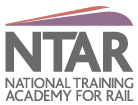Our Portfolio
Training for the digital age
Our portfolio of specialist training programmes has been designed to meet the demand for a larger skilled workforce with the technical capabilities to support Britain’s railways as they transition to a digital network. Each course is held at our hi-tech training centre in Northampton and is delivered by our expert, experienced tutors.
Technical Training in Traction and Rolling Stock Systems.
The Traction and Rolling Stock sector require an additional 4,900 technicians and engineers by 2025 just to keep up with today’s needs, and a further 3,300 for future projects and technology such as HS2, and to support the transition to the ‘Digital Railway’. With demand exceeding supply, this is an exciting time to train or build a skills base in the
rail industry.
The Certificate in Traction and Rolling Stock Systems is a unique, internationally recognised Level 3 qualification based around six primary units, which deliver knowledge and / or competency relating to the fundamentals of how a train’s components work and include how to maintain or fix problems that arise on Traction and Rolling Stock in a depot. It has been specifically designed to meet the challenges and needs of an ever-developing rail industry.
Qualifications Available:
Level 3 Certificate in Traction and Rolling Stock Systems
Level 3 Traction and Rolling Stock NVQ (please enquire here).
Upcoming L3 Certificate in Traction and Rolling Stock Systems Dates:
25/11/2024
Upcoming L3 Certificate in Traction and Rolling Stock Systems - CTP (Career Transition Partnership) Ex Forces SPECIFIC Dates:
03/03/2025
12/05/2025
30/06/2025
01/09/2025
Technical Training in Telecommunications.
The demand for 24/7 Wi-Fi connectivity from rail passengers finally led to the announcement by the UK government in 2017 of its plans to modernise telecommunications and provide uninterrupted connectivity on main routes by 2025. Passengers want to be able to use their travel time effectively by working and communicating on the move, and that means consistent access to Wi-Fi.
This extensive upgrade requires rail technicians to understand the new technology - fibre optics, and the current technology they’re replacing – copper cabling. To ensure technicians and engineers can meet this ambitious target NTAR has developed two courses, suitable for both industry and ex-forces, that will equip the railway’s telecoms experts with the technical knowledge and relevant skills to achieve the government's connectivity plans.
Qualifications:
EAL Level 3 Award in Telecom Fibre and Copper
Course
European Rail Traffic Management System (ERTMS) Short Form Courses
London Trams Tramlink Worksite Supervisor/Tramlink Possession Supervisor.
This course is designed to give candidates the ability to protect areas of the tramway and take a possession when the work is required. TWS and TPS is two separate competencies however the course is only ever run as both. A successful candidate will be deemed competent for both roles.
Once the course has been completed a successful candidate must enter a mentoring period with a competent TWS/TPS, once the competent person deems them ready, their cards will be issued. This is arranged by TfL.
Qualifications:
The course gives the candidate a two-year competency.
Upcoming Dates:
16/01/2025
12/02/2025
12/03/2025
09/04/2025
14/05/2025
11/06/2025
09/07/2025
13/08/2025
10/09/2025
08/10/2025
12/11/2025
10/12/2025


Training for incident investigation and improved safety culture
We are pleased to be introducing four new EHS courses that will explore the process of accident investigation, the human factors involved, and will look at improving a safety awareness culture.
Introduction to Accident Investigation.
This is a NEBOSH created course with the aim of introducing and educating the course attendee about Accident Investigation. The delegate will learn incident terminology, the moral, legal, and financial arguments for investigations and management system requirements. They will be able to recognise how human and organisational factors can contribute to an incident and describe the process for investigating incidents. They will also be able to outline positive strategies that can be adopted for interviews following incidents and what the barriers to successful interview outcomes are.
Lead Accident Investigator.
This is a course designed by Siemens Mobility at an intermediate level, to provide the learner with the guidance and information they need to conduct investigations confidently. Throughout the course the delegate will learn how to examine investigations and explore what contributes to a success. They will understand how to prepare an investigation plan and how to create a good team as well as explore the accident prevention mindset and discover how to conduct strong conversations. They will have a good understanding of root causes and how to hold interviews that are non-bias, fair and which understand human factors.
Tools and models used within the business to help aid investigative work will also be explored as well as how to write a report.
Human Factors
This is another course designed by Siemens Mobility which aims to increase understanding and awareness of human factors and how they’re applied in the workplace.
The attendee will learn various techniques relating to Human Factors and apply tools to effectively identify how they can impact human performance. The knowledge gained from attending this course will support delegates to conduct accident investigations as well as manage change within their teams and business areas.
Test Check Marking
This short course provides an introduction to testing staff, and acts as a reminder of the requirement to perform check marking to NR/L2/SIG/30014/C310 objectives to develop delegate understanding of the requirements for Check Marking, and recording on Test Copies to be used during Signalling Works Testing procedures.
At the end of the course, the delegate will be able to:
Describe the check marks used for Inspection
Describe the check marks used for Wire Counting
Describe the check marks used for Continuity Testing
Describe the check marks used for Cable Testing
Describe the check marks used for Function Testing
Describe the check marks used for Through Testing
Describe the check marks used for Fibre & Network Schematics
Describe the check marks used for Control TablesDescribe the check marks used for Scheme Plan Verification
Describe the check marks used for Track Bonding Plans
Describe the check marks used for Sighting Forms
Describe the check marks used for Data Documentation Target Group Signalling Testing Staff
Managing Safely
This IOSH course is designed to give learners the skills and knowledge needed to manage safely in the workplace and improve and organisation’s safety awareness culture.
The course overview:
Law and Regulations
An overview of the key pieces of legislation and regulations that apply to the workplace
Risk Management
Understanding, assessing, and controlling risk to ’reasonably practicable’ levels
Accidents at Work
Investigating accidents in the workplace to establish immediate and root causes
Health & Safety Performance Indicators
Analysing reactive and proactive health and safety performance indicators
Environmental & Pollution Management
Appreciate the fundamental requirements of effective environmental waste and pollution management.
What people are saying
“An apprenticeship was more relevant to my personal goals and has allowed me to mature and develop professionally; my confidence has increased ten-fold”
— Former Apprentice
“The clear indication that ex-forces personnel were valued and that our skills were needed led me to focus on the Rail industry as my primary goal”
— Former Ex-Forces student


